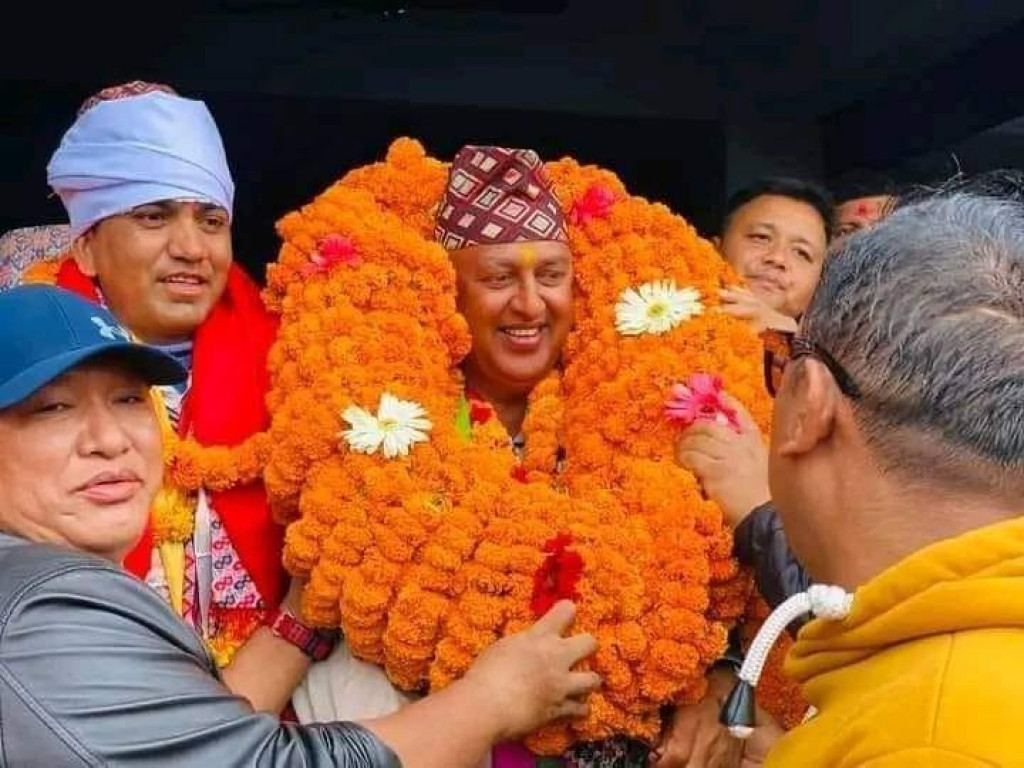Nepali Congress Pledges to Advocate for Nepal's Transition to Vedic Sanatan Hindu State

In a recent development, Shankar Bhandari, a prominent leader within the Nepali Congress and a Member of Parliament, has announced the party's intention to spearhead discussions with other political entities to declare Nepal as a Vedic Sanatan Hindu state. Bhandari, who has been at the forefront of the "Vedic Sanatan Hindu Rastra establishment campaign" within the Nepali Congress, emphasized that reinstating the Hindu state status would rectify what he perceives as a misstep in Nepali politics.
During an interview, Bhandari articulated the party's strategy, stating, "We believe in initiating discussions with all existing parties in the Federal Parliament. We've noted concerns from various quarters, including the Nepal Communist Party, regarding the rise in conversions, which we view as counterproductive. Our goal is to rally support for Vedic Sanatan Hinduism, and we are optimistic about garnering broader consensus."
Highlighting the roadmap ahead, Bhandari outlined plans to initiate a national dialogue and engage in discussions with political stakeholders. He underscored the necessity of securing a two-thirds majority in Parliament to formalize the transition to a Hindu state, citing constitutional requirements.
The momentum behind Bhandari's campaign gained traction during the recent five-day Maha Samiti meeting in Godawari, Lalitpur. At the gathering, signatures supporting the agenda for a Hindu nation were collected, with approximately 1100 participants endorsing the cause out of 1950 designated members.
Following the conclusion of the Maha Samiti meeting, Bhandari presented the collected signatures to Nepali Congress President Sher Bahadur Deuba, who pledged to raise the issue in the Central Committee meeting. Notable signatories include central members of Nepal's largest parliamentary party, including former General Secretary Shashank Koirala.
However, it's noteworthy that the agenda for a Hindu nation was not formally deliberated during the Maha Samiti meeting. Nepal's political landscape underwent significant transformation post the 2006 People's Movement-II, transitioning from monarchy to democracy and ultimately adopting a secular state framework in 2015.
Responding to inquiries regarding the potential reinstatement of monarchy, Bhandari clarified that the party's focus remains on establishing a Hindu state and dismissed claims of reverting to monarchical rule. He underscored the historical significance of Hinduism in Nepal and pledged to address concerns surrounding ethnicity and personal freedoms.
The resurgence of demands for a Hindu state echoes sentiments across various political factions in Nepal, with the Rastriya Prajatantra Party advocating for both a Hindu state and the reinstatement of monarchy. However, Bhandari clarified that the Nepali Congress would only support the former, not the latter.
In a bid to bolster their stance, supporters of the Hindu nation agenda have been actively petitioning within the Nepali Congress. Previous gatherings saw significant support, with hundreds expressing solidarity through signatures and petitions submitted to party leadership.
Notably, Hinduism remains the predominant religion in Nepal, with approximately 81% of the population adhering to it, as per the 2021 census. The diverse religious landscape underscores the complexities surrounding the debate over Nepal's constitutional identity.
Nepali Congress



![From Kathmandu to the World: How Excel Students Are Winning Big [Admission Open]](https://nepalaaja.com/img/70194/medium/excel-college-info-eng-nep-2342.jpg)
